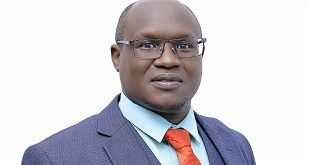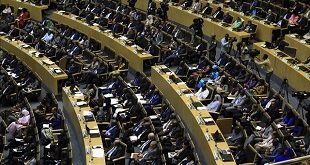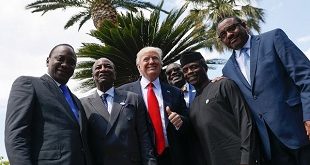
By Andrew M. Mwenda
As mayor, he needs to strike a balance between the competing demands of his electoral base and his job
Last week, Kampala Mayor Erias Lukwago was impeached by 29 to three votes in the Capital City Council. However, the High Court later declared his impeachment hurried and reinstated him. Lukwago’s supporters were jubilant, seeing this as a major victory.
Tactically, yes. But strategically the Lord Mayor can delay but cannot stop his fall. NRM may have used many dirty tricks to frustrate Lukwago leadership. However, this was not inevitable. Lukwago bears a significant part of the responsibility for his troubles.
Lukwago was elected on an independent ticket having fallen out with his own political party, the Democratic Party (DP). The DP is a powerful political influence in the city that produced the last two preceding mayors.
It is also backed by the Catholic Church that is a powerful force in our politics. Its institutional cooperation is necessary for any mayor to govern the city. Lukwago also inherited a city legislature (council) composed of 18 councilors from the ruling National Resistance Movement (NRM) plus two independents allied to it. And Lukwago and NRM are bitter enemies.
More still DP had six councilors and one independent allied to it. All the seven accuse Lukwago of having fought them during the election. This means that from the beginning, 27 out of 30 councilors had an axe to grind with the mayor.
Yet this council was the team over which Lukwago was supposed to preside, bring members together to develop city policies and programs for implementation, approve budgets, and provide political oversight to the administrative team headed by the Executive Director, Jennifer Musisi. Thus, from the word go, Lukwago had no base in the council.
Worse still, Lukwago inherited a technical administration headed by an executive director appointed by President Yoweri Museveni, propped by him, financed by him and therefore beholden to him. Museveni has been unusually supportive of Musisi, often inviting her to state house and holding meetings with her and her team while excluding Lukwago from them. Clearly, Museveni was using Musisi, even dubiously, to try and undermine Lukwago. In real politics, it was in Museveni’s interests to frustrate Lukwago.
NRM wanted to invest more money in the city. In the first year, the budget of the city increased from Shs45 billion to 75 billion. This financial year (the third year) it has reached Shs200 billion. NRM certainly wanted to take full credit for any improvements in the city and perhaps reap a handsome political dividend. And more importantly for the powerful barons of the ruling party, they must have wanted to partake in the increased budget by capturing all the lucrative city tenders and through corruption.
Hence to govern, Lukwago needed exceptional political and leadership skills. He needed the support of councilors from political parties that had an axe to grind with him. He also needed the cooperation of administrative machinery that had been hurriedly put in place to thwart his ambitions and plans. Therefore, he needed to seduce hostile councilors and the administrative team. This is a tall order for anyone.
It demanded Lukwago make compromises many of which would have betrayed his ideals and vision. For example, it may have demanded that he tolerates their corruption and turns a blind eye to their buccaneering. He needed to be conciliatory. Instead he chose to be confrontational. Why?
I studied with Lukwago in the class of international law at Makerere University, lived with him as my neighbor in Lumumba Hall and we always engaged in political debate. We have thus been friends for many years. He is not the conciliatory type. However, I think that his political approach, though reflective of his personality, cannot be reducible to it. To understand his conduct, one has to look at the political dilemma that Lukwago faced.
Lukwago was elected through a political constituency largely hostile to Museveni and NRM. It was also sick of the corruption and buccaneering inside the DP. If he attempted any conciliatory approach, Lukwago would have been seen as joining the thieves.
He would have been denounced as a traitor to the cause: accused of selling out to an old corrupt guard in DP and bribed by Museveni. So what Lukwago needed to govern effectively was politically toxic to his base. And Lukwago is a politician driven, like all politicians, by one overriding ambition – to retain his base so as to be re-elected.
But Lukwago is also a man of grand ideals. He wanted to curb the power of the Uganda Tax Drivers and Operators Association (UTODA) for the good of the city. He allied with Musisi to take management of parks from UTODA. In doing this, he alienated the other major constituency in the city, Muslims. Lukwago, himself a Muslim, had been elected with significant Muslim support.
Over 70 percent of UTODA is controlled by Muslims, their kingpins being Prince Kassim Nakibinge who also heads the Kibuli faction of Muslims and Haji Moses Kigongo, the national vice chairman of the ruling NRM. Behind Nakibinge is also a constituency at Mengo, the seat of Buganda Kingdom.
In stepping on too many toes while lacking a solid base rooted in those institutions through which Ugandans organise for political action (political parties, religious organisations, traditional collectivities etc), Lukwago got dangerously exposed.
But he had one force behind him – the street. Rather than lead his supporters, they led him. So he failed to transition himself from an opposition activist into a chief executive of the city. As mayor, Lukwago is supposed to govern. Yet he spent most of his time protesting on the streets and being beaten by police.
If Lukwago lacked the skills to govern, he utilised the skills he had in abundance i.e. for protest. But that meant he would keep his base via emotional sympathy instead of keeping it through the benefits of public policy. By fearing to compromise, he was held hostage to his base. Yet in doing this, Lukwago may suffer the fate of the ancient Roman statesman, Gaius Sempronius Gracchus.
Elected tribune in 123 BC, Gaius pursued progressive reformist policies that annoyed the patricians (the upper classes) but benefited the popularis (the poor classes). This instigated a constitutional crisis and the Roman Senate ordered his death. When his severed head was brought to the senate as a prize, the city mob he had befriended did not raise in protest; it was busy plundering his house.
amwenda@independent.co.ug
 The Independent Uganda: You get the Truth we Pay the Price
The Independent Uganda: You get the Truth we Pay the Price


